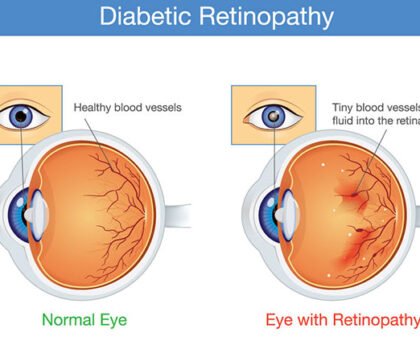Knowing when to see a doctor is a key part of staying healthy. Many people wait too long, hoping minor symptoms will disappear. This can make small issues turn into bigger, harder-to-treat problems. Early medical attention allows for timely diagnosis and intervention. It can prevent complications and improve outcomes for many conditions. Consulting a best general physician in Noida ensures you have guidance from an experienced professional who can spot warning signs before they become serious. Routine checkups, tests, and simple advice from a trusted doctor can make a huge difference in long-term health.
Recognising Persistent Fatigue and Low Energy
Feeling tired more than usual is not something to ignore. Persistent fatigue can be caused by anemia, thyroid problems, sleep disorders, or infections. It may also signal chronic conditions like diabetes, heart disease, or vitamin deficiencies. Fatigue affects daily life, concentration, and productivity. Ignoring it can allow underlying problems to worsen. A doctor can run simple tests to identify the cause and provide solutions. Lifestyle guidance, diet adjustments, and appropriate treatments help restore energy and improve overall well-being. Regular monitoring ensures fatigue does not mask a more serious health issue.
Unexplained Pain and Discomfort
Pain in the body is usually a signal that something is wrong. Back pain, joint stiffness, persistent headaches, or abdominal discomfort may seem minor, but they can indicate deeper issues. Chronic pain may affect mobility, mood, and daily routine. Pain that does not improve with rest or over-the-counter medications should be addressed early. Doctors can identify whether pain is caused by muscular, skeletal, neurological, or internal problems. Early diagnosis can prevent the condition from worsening, reduce the need for invasive procedures, and provide long-term relief.
Digestive Issues and Changes in Appetite
Digestive problems are more common than many realise. Irregular bowel movements, stomach pain, bloating, or sudden changes in appetite could indicate food intolerances, infections, or chronic digestive disorders. Persistent nausea, heartburn, or acid reflux may point to underlying conditions that need medical attention. Early consultation allows for proper diagnosis and treatment. Hospitals equipped with diagnostic tools, like endoscopy or imaging, help identify causes accurately. The best hospital in Noida ensures access to the right specialists and advanced testing facilities. Prompt care prevents minor digestive issues from becoming serious problems like ulcers or chronic gastritis.
Unusual Skin Changes and Rashes
The skin often reflects internal health. Sudden rashes, discolouration, persistent dryness, or unusual moles may indicate allergies, infections, vitamin deficiencies, or more serious diseases like autoimmune conditions. Even minor changes that do not heal on their own should be checked. Early medical advice ensures accurate diagnosis and timely treatment. Simple interventions can prevent complications, relieve discomfort, and improve overall skin health. Doctors can also offer guidance on lifestyle adjustments, diet, and preventive care to maintain healthy skin over time.
Sudden Weight Fluctuation
Unexpected weight gain or loss without a clear reason is a warning sign. Sudden changes may be caused by thyroid issues, hormonal imbalances, diabetes, or metabolic disorders. Rapid weight changes also impact energy levels, mood, and long-term health. Early medical consultation allows doctors to determine the root cause and suggest the right treatment plan. Tracking weight changes over time helps identify patterns and prevent severe complications. Nutrition guidance, lifestyle advice, and medication adjustments can restore balance and support healthy weight management.
Breathing Difficulties and Heart-Related Symptoms
Shortness of breath, chest tightness, irregular heartbeat, or sudden fatigue can be signals of heart or lung problems. Early medical assessment can detect conditions like high blood pressure, heart disease, arrhythmias, asthma, or other respiratory issues. Ignoring these symptoms can lead to emergencies or chronic illness. Timely intervention allows for effective treatment, monitoring, and lifestyle changes that improve long-term health outcomes. Doctors can provide diagnostic tests such as ECG, echocardiograms, or lung function tests to ensure accurate care. Early detection and treatment reduce risk and give peace of mind.
Why Preventive Care Matters
Preventive care is the foundation of good health. Routine checkups, screenings, vaccinations, and lifestyle guidance help identify risks before symptoms appear. Staying proactive prevents minor issues from becoming major health problems. Tracking blood pressure, sugar levels, cholesterol, and weight regularly keeps health on track. Hospitals and clinics focusing on preventive care provide education and support for exercise, diet, and mental well-being. Early checkups allow doctors to tailor advice to individual needs, reducing the chances of severe illness later. Regular preventive care is a simple step with long-term benefits.
Choosing the Right Doctor and Facility
Selecting the right doctor and hospital ensures quality care and confidence in treatment. Look for a physician who listens, communicates clearly, and has experience with a range of health concerns. A general physician is often the first point of contact for new or ongoing health issues. A trusted hospital provides access to diagnostic tools, specialists, emergency care, and modern facilities. Choosing experienced professionals makes it easier to receive accurate diagnosis, timely treatment, and consistent follow-up. Combining the right doctor with a reliable hospital ensures comprehensive healthcare and peace of mind.
Taking Action Early Improves Health Outcomes
Ignoring early warning signs increases the risk of chronic illnesses, complications, and longer recovery times. Addressing symptoms quickly improves treatment effectiveness and quality of life. Fatigue, pain, digestive issues, skin changes, weight fluctuations, and breathing difficulties should prompt immediate medical attention. Consulting a good physician ensures proper evaluation and treatment. Early care reduces stress, avoids prolonged suffering, and allows patients to lead healthier lives. Listening to your body and acting on early warning signs is the simplest way to protect your health.
Conclusion
Paying attention to your body and recognising when something is off is vital. Persistent tiredness, unexplained pain, digestive problems, skin changes, sudden weight shifts, and breathing issues are all signals to see a doctor. Early visits allow for timely diagnosis, effective treatment, and better long-term outcomes. Consulting a best general physician and choosing the best hospital ensures that you receive professional, reliable care. Don’t wait for symptoms to get worse. Acting early protects your health, saves time, reduces stress, and improves your overall well-being. Proactive healthcare is always the best approach.





